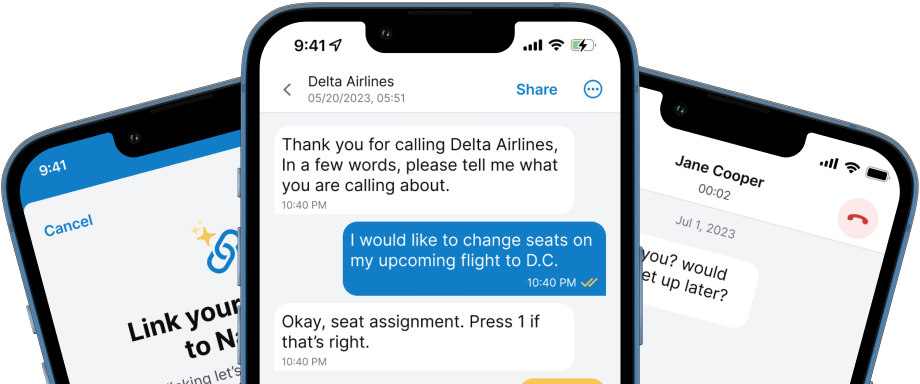Hearing Aids vs. Hearing Amplifiers: What’s the Difference?
Hearing amplifiers and hearing aids are two popular devices for improving listening. Click here to learn all about them and their differences!

Hearing amplifiers and hearing aids are two popular devices for improving listening. However, they work differently, serve different purposes, and are ultimately intended for different people. This guide will help you understand the differences between them.
What are Hearing Amplifiers?
Hearing amplifiers are sound-amplifying devices, also known as Personal Sound Amplification Products (PSAP), that increase the volume of surrounding sounds without isolating specific frequencies.
Hearing amplifiers are not specifically intended for people with hearing loss. They can be purchased without a prescription, and a hearing loss diagnosis is not necessary.
Although some people with mild hearing loss use hearing amplifiers, they are also commonly used by people with normal hearing ability who want to amplify sounds, especially for recreational purposes such as birdwatching or hunting.
Some common scenarios where people might use personal sound amplifiers include:
- Outdoor activities
- Theaters and speaking events
- Noisy environments
- Phone conversations
What are Hearing Aids?
Hearing aids are electronic devices that enhance sounds, specifically designed for people with hearing loss. They can be removable earpieces or surgically placed implants that amplify specific frequencies.
There are several types of hearing aids, such as In-the-ear (ITE), In-the-canal (ITC), Behind-the-ear (BTE), Receiver-in-the-ear (RITE), Completely-in-the-canal (CITC), and Cochlear implants.
Hearing aids are available from a hearing healthcare professional, and recently, some models have been available over-the-counter (OTC) to treat varying levels of hearing loss, from mild to severe.
Some common scenarios where people might use hearing aids include:
- Everyday communication
- Listening to TV
- Medical appointments
- Educational or professional settings
- Listening to music
- Phone conversations
What’s the Difference Between Hearing Amplifiers and Hearing Aids?

Both hearing amplifiers and hearing aids can amplify sound. However, the major difference is that hearing aids are Class 1 medical devices regulated by the FDA and intended for people with hearing loss who may benefit from customized hearing solutions.
On the other hand, hearing amplifiers (PSAPs) are not FDA-regulated and can be purchased online or over-the-counter. Their technology is not customized to individuals' needs and preferences. Instead, the device amplifies all sounds.
Hearing amplifiers are a “one-size-fits-all” device that makes all sounds louder. This makes listening to speech in noisy environments with amplifiers difficult, as the background noises and speech will present the same loudness level.
Some hearing amplifiers include different capabilities, such as high and low modes, noise reduction, and volume settings. Some models include a telecoil, allowing users to connect to hearing loop systems. But even though these added features may help to an extent, they won't compare to a fully customized hearing aid device tailored to specific hearing needs.
Key Differences Between Hearing Aids and Hearing Amplifiers
Hearing Aid Technology
Hearing aid technology has greatly evolved, leveraging sophisticated digital signal processing to deliver customizable solutions that improve the listening experience.
Some features include:
- Noise reduction
- Feedback cancellation
- Directional microphones
At the same time, it has also integrated the listening experience into daily life. For example, most hearing aids now include Bluetooth connectivity, waterproof capabilities, extended battery life, and discrete designs.
Hearing Amplifier Technology
Hearing amplifiers typically use basic analog or digital amplification technology with limited or no sound processing capabilities. While some hearing amplifiers may include basic noise reduction or feedback cancellation features, they don’t provide the same level of customization as hearing aids.
Cost and Accessibility
Hearing amplifiers are generally more affordable and accessible than hearing aids. They are often priced lower and can be purchased without professional fitting or consultation as opposed to hearing aids.
However, the lower cost and accessibility of hearing amplifiers come with trade-offs regarding sound quality, customization options, and suitability for individuals with more severe hearing loss.
Alternatives to Hearing Amplifiers or Hearing Aids

There are several alternatives to these devices.
Live Transcribe Apps
Innovative apps are readily available to facilitate communication, whether making phone calls, listening to lectures, meetings, public announcements, or engaging in live conversations.
Using AI-powered capabilities and live transcribe technology, Nagish helps you engage with the world around you in real-time, providing a readily accessible communication tool for those with hearing loss that is easy to use, convenient, and free.
Captioning Services
Adding captions to videos, whether televised or online, can help people understand speech when their hearing is compromised, or background noise makes it hard to hear. As an added bonus, it may also boost children's literacy.
Amplified Phones
Amplified phones are useful tools that include several features for people who find it difficult to hear others while talking on the phone. They can increase the volume higher than traditional phones, and some include flashing lights for incoming calls.
The Takeaway
Whether a person should wear hearing amplifiers or hearing aids is a matter of personal preference, the purpose of wearing the device, and the degree of hearing loss.
Ultimately, people with hearing loss should consult a hearing specialist and opt for custom hearing aids tailored to their hearing needs. Instead, a hearing amplifier might be ideal if the person’s hearing ability is not compromised and they seek to enhance certain sounds in specific events or activities.
Keep in mind that hearing amplifiers should be worn with caution, as the amplified sounds can potentially damage your hearing.





